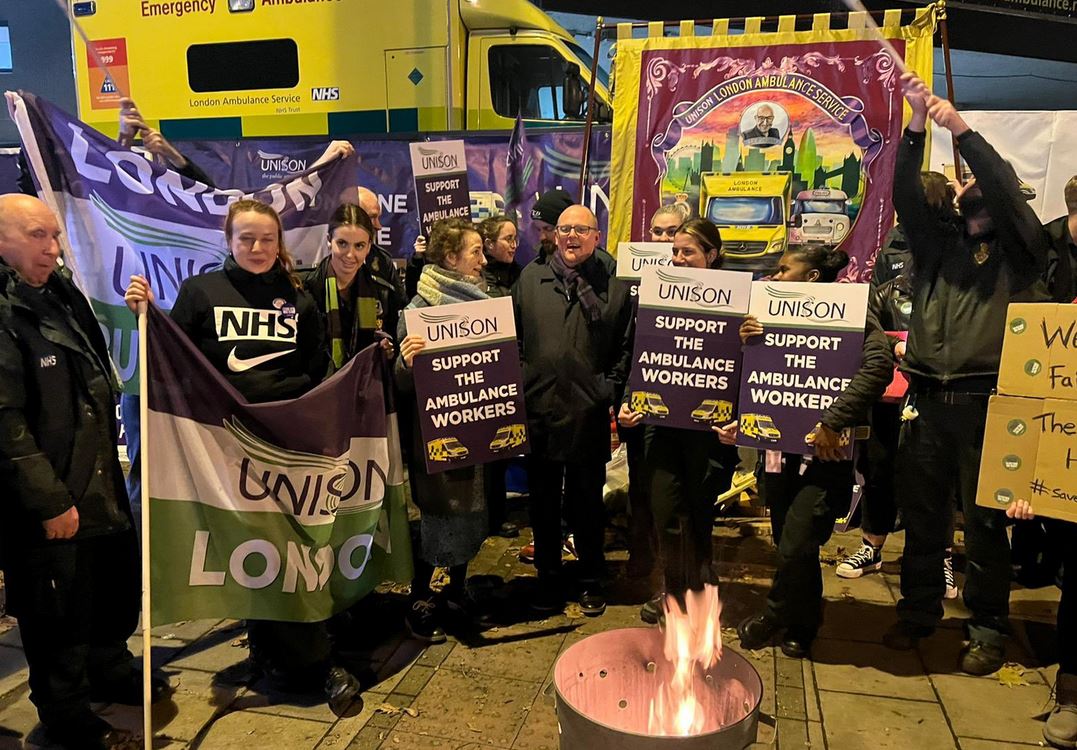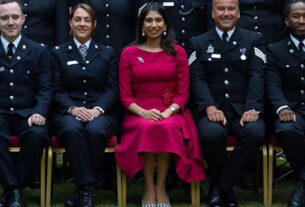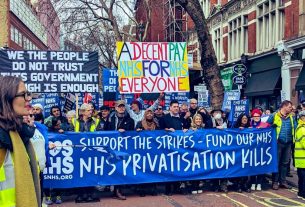Trade unions have vowed to “fiercely resist” Rishi Sunak’s new anti-strike law that will give employers the right to sue unions and sack workers who take industrial action.
The government plans to legislate for “minimum safety levels” in six key sectors – health, education, fire, ambulance, rail and nuclear commissioning – during strikes, giving bosses powers to sue and sack if the minimum levels are not met. The new law will also empower employers to take out injunctions to prevent strikes and to seek damages following industrial action.
Secretary of state for business Grant Shapps said the new legislation won’t violate workers’ human rights and could be introduced “quickly” into parliament.
Trade union leaders said they will take legal action against the anti-strike law while Sir Keir Starmer said Labour will repeal it if he is elected prime minister.
TUC leader Paul Nowak called the bill “wrong, unworkable and almost certainly illegal”. The TUC said restricting the right to strike could violate the 1998 Human Rights Act and is preparing to take legal action against the bill.
“This is an attack on the right to strike. It’s an attack on working people. And it’s an attack on one of our longstanding British liberties,” said Nowak.
The Fire Brigades Union (FBU) said it will “fiercely resist” any anti-strike law and will join legal action. FBU general secretary Matt Wrack said: “The Tories are clearly hellbent on criminalising and victimising trade unions with this threatened onslaught on the right to strike.”
Wrack added: “The FBU will fight this pernicious attack on workers both in and out of the courts.”
Starmer said the legislation is “likely to make a bad situation worse” and not “the way you bring an end to industrial disputes. Will we repeal it? Yes we will.”
The Guardian reports that it “has learned that even the government has admitted its approach of using minimum service levels to curb strikes could backfire” with unions forced to strike more regularly to put pressure on bosses.
Shapps says anti-strike law ‘will restore the balance’
Shapps promised to protect “the freedom to strike” while defending the anti-strike law. He said: “As well as protecting the freedom to strike, the government must also protect life and livelihoods.”
Minimum safety levels will, Shapps argues, “restore the balance between those seeking to strike and protecting the public from disproportionate disruption.”
Head of health at Unison, Sara Gorton said: “The public and health staff would welcome minimum staffing levels in the NHS every day of the week. That way, people wouldn’t be lying in agony on A&E floors or dying in the backs of ambulances.
“But limiting legal staffing levels to strike days and threatening to sack or fine health workers when there are record vacancies in the NHS show proper patient care isn’t what ministers want.
“The government is picking ill-advised fights with NHS employees and their unions to mask years of dismal failure to tackle pay and staffing.”
Starmer promises ‘take back control’ solution
Starmer set out his vision for Britain’s future today (Jan 5) – less than 24 hours after Sunak had outlined his – and told the nation that Labour “will embrace the ‘take back control’ message”.
“But we’ll turn it from a slogan into a solution, from a catchphrase into change,” said Starmer, promising a plan for “a decade of national renewal”.
The Labour leader pledged to introduce a ‘take back control’ bill to devolve power away from Westminster to the regions and assemblies in the first term of a Labour government. The new legislation will give local authorities and governments greater autonomy in areas including transport, infrastructure, skills and training.
Jacketless and with sleeves rolled up – in contrast to Sunak’s fully suited presentation – Starmer said it was “not unreasonable for us to recognise the desire for communities to stand on their own feet”.
That is “what ‘take back control’ meant”, said Starmer, promising the new legislation will be a “centrepiece of our first King’s speech. A Bill that will deliver on the demand for a new Britain. A new approach to politics and democracy. A new approach to growth and our economy.”




